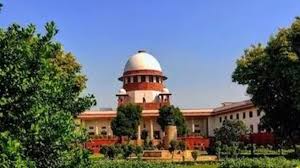Supreme Court orders status quo on liquidation of Bhushan Power and Steel

In a major legal development, the Supreme Court of India has paused the liquidation of Bhushan Power and Steel Ltd (BPSL). The Court issued the order on May 26, 2025, after JSW Steel requested a stay. This decision offers temporary relief in a long-running corporate battle.
The Long Battle for BPSL
BPSL once stood among India’s top steel producers. In 2017, creditors dragged the company into insolvency proceedings due to unpaid loans. Its debt had crossed ₹47,000 crore, making it one of the most high-profile cases under the Insolvency and Bankruptcy Code (IBC).
JSW Steel submitted a ₹19,300 crore bid in 2019 to acquire BPSL. The bid included promises to revive operations and repay lenders. After long delays caused by legal challenges, JSW finally took over the company in 2021.
However, this resolution did not last. On May 2, 2025, the Supreme Court overturned the takeover. It ruled that JSW Steel’s plan violated key provisions of the IBC and ordered the company to go into liquidation.
Status Quo Ordered
JSW Steel responded quickly. The company argued that liquidation would damage not only its own interests but also those of employees, vendors, and lenders. It said the BPSL plant in Odisha remained fully operational and profitable.
Recognizing the urgency, the Supreme Court ordered a status quo on the liquidation process. The National Company Law Tribunal (NCLT) had begun liquidation, but the Court halted all proceedings. JSW now has until June 2 to file a formal review petition against the May 2 judgment.
Why This Matters
The Supreme Court’s decision reflects growing concerns about the stability of India’s insolvency process. The IBC was created to favor resolution over liquidation. It aims to revive viable businesses, protect jobs, and maximize returns for creditors.
The reversal of a completed resolution sends a worrying message. JSW Steel had already invested in BPSL, restructured its operations, and made payments to lenders. Undoing the deal after four years creates legal uncertainty. Investors and buyers may now hesitate to participate in future IBC cases.
Stakeholder Impact
Banks had high hopes for the JSW-BPSL deal. Leading creditors like Punjab National Bank and SBI recovered significant sums from the resolution. A liquidation would reduce these returns and force them to write off larger losses.
Employees and suppliers also face risks. The BPSL plant in Odisha plays a key role in the local economy. It supports thousands of jobs, directly and indirectly. Liquidation could shut down operations and trigger mass layoffs.
For JSW Steel, the stakes are even higher. The company integrated BPSL’s production into its national supply chain. Losing this asset would affect its manufacturing output, supply contracts, and expansion plans.
Legal and Economic Questions
The case raises important legal questions. Can a resolution plan, once approved and implemented, still be reversed? Should commercial decisions by resolution professionals be subject to future legal reviews?
The Court’s earlier decision to invalidate JSW’s plan has drawn criticism from legal experts. Many argue that such reversals hurt the core objectives of the IBC—speedy resolution, legal certainty, and economic revival.
The case also highlights the role of enforcement agencies like the ED. Their intervention in the resolution process led to delays. Policymakers must decide whether such agencies should operate outside or within insolvency proceedings.
What’s Next?
JSW Steel must file its review petition by June 2. The Supreme Court is expected to hear the matter soon after. If the Court accepts the petition, it may revise or clarify its earlier ruling.
If it rejects the review, liquidation may resume. This would open the door for more litigation, as stakeholders push to protect their interests.
For now, the status quo order provides breathing room. It stops irreversible actions, such as asset sales or workforce terminations, until the Court gives a final decision.
Conclusion
The Supreme Court’s halt on BPSL’s liquidation is more than a legal delay—it is a test of the IBC’s credibility. The case shows the need for a balance between judicial oversight and commercial finality. It also reflects the real-world impact of legal uncertainty on jobs, investment, and economic growth.
India’s insolvency framework must evolve with lessons from this case. Future reforms should aim to preserve resolution outcomes, reduce legal ambiguity, and restore investor trust. What happens next in the JSW-BPSL saga could shape the direction of corporate rescue in India for years to come.






